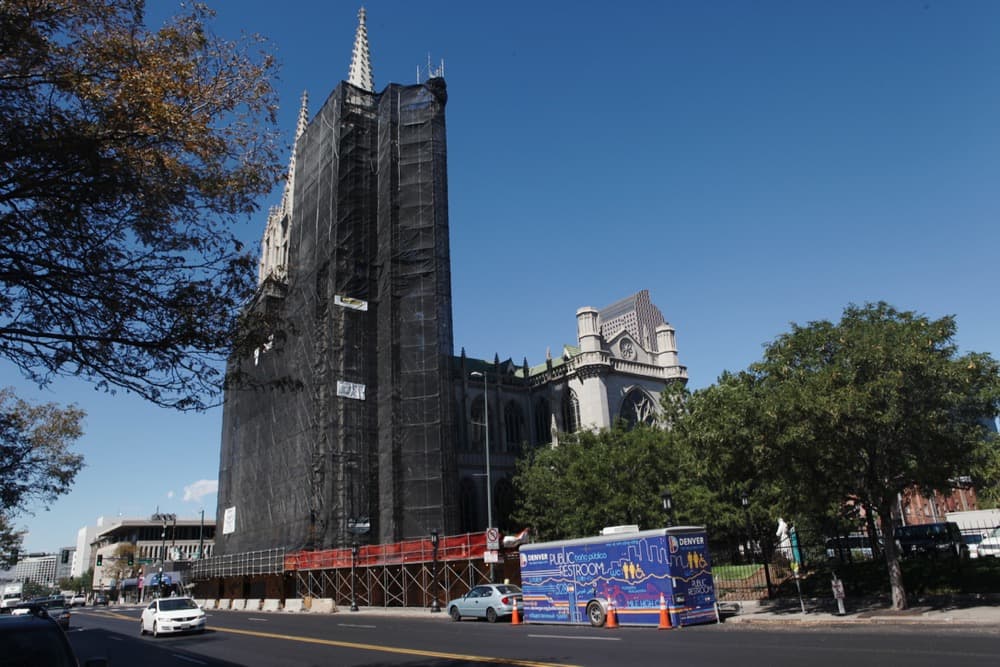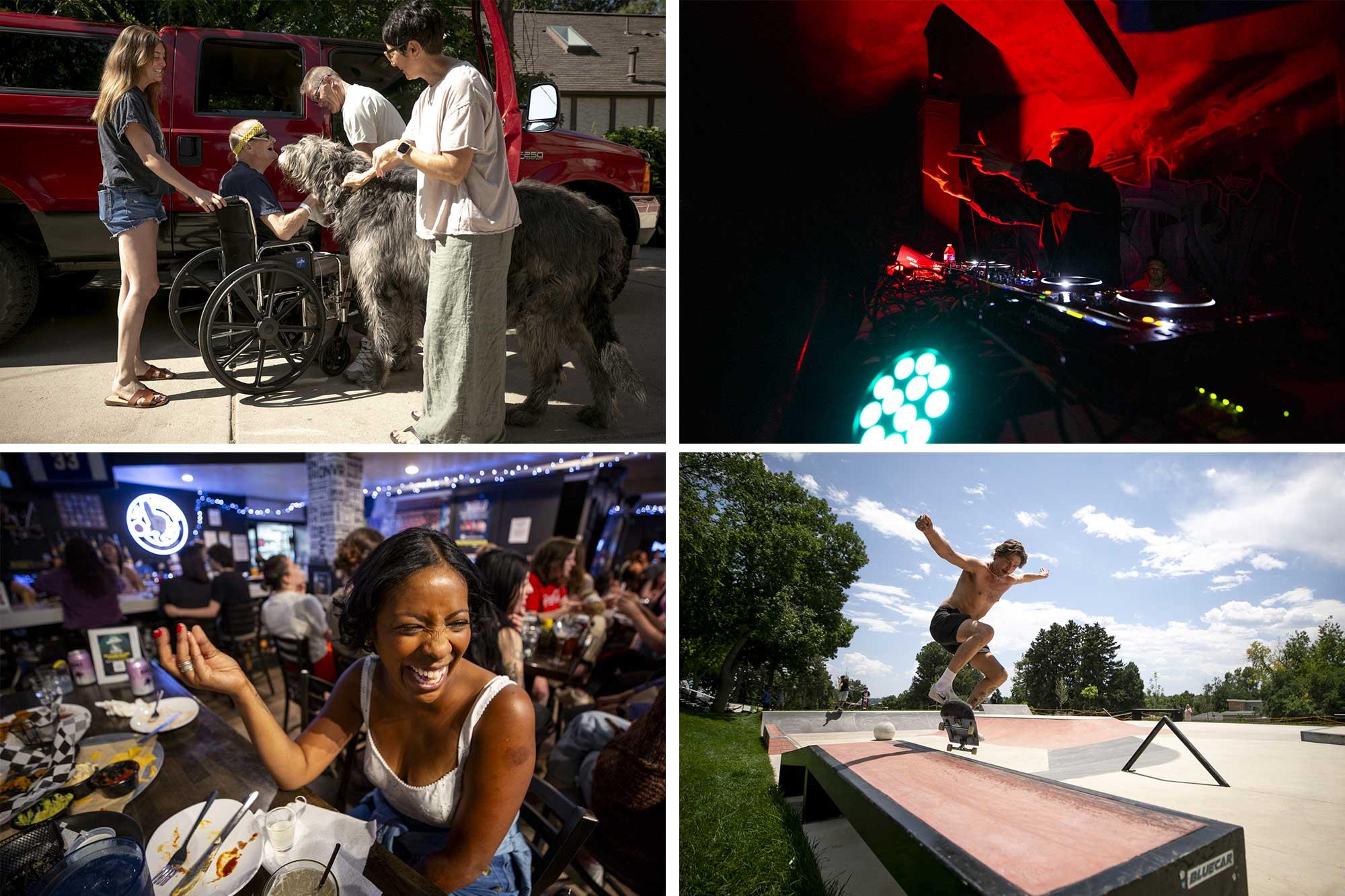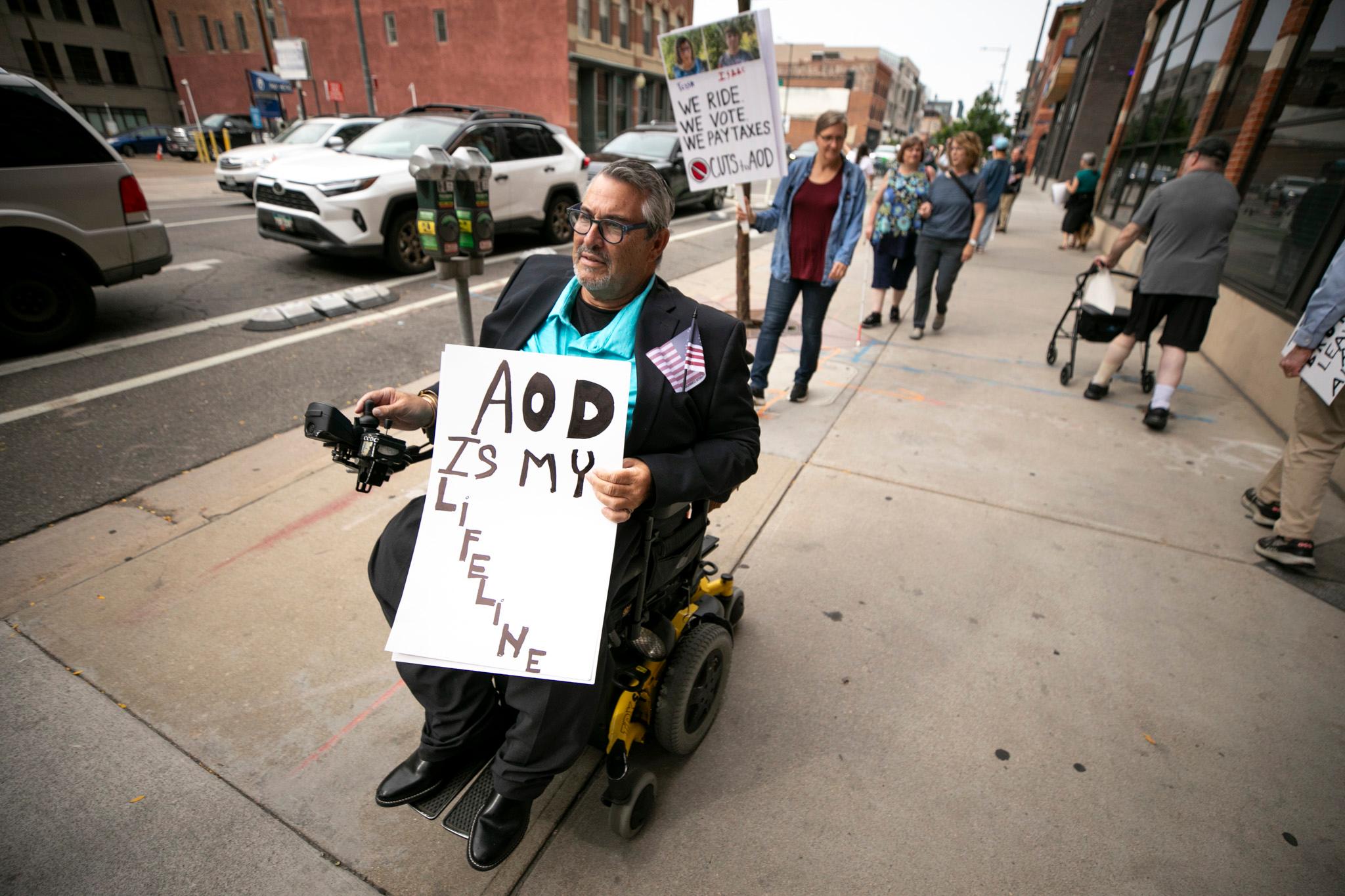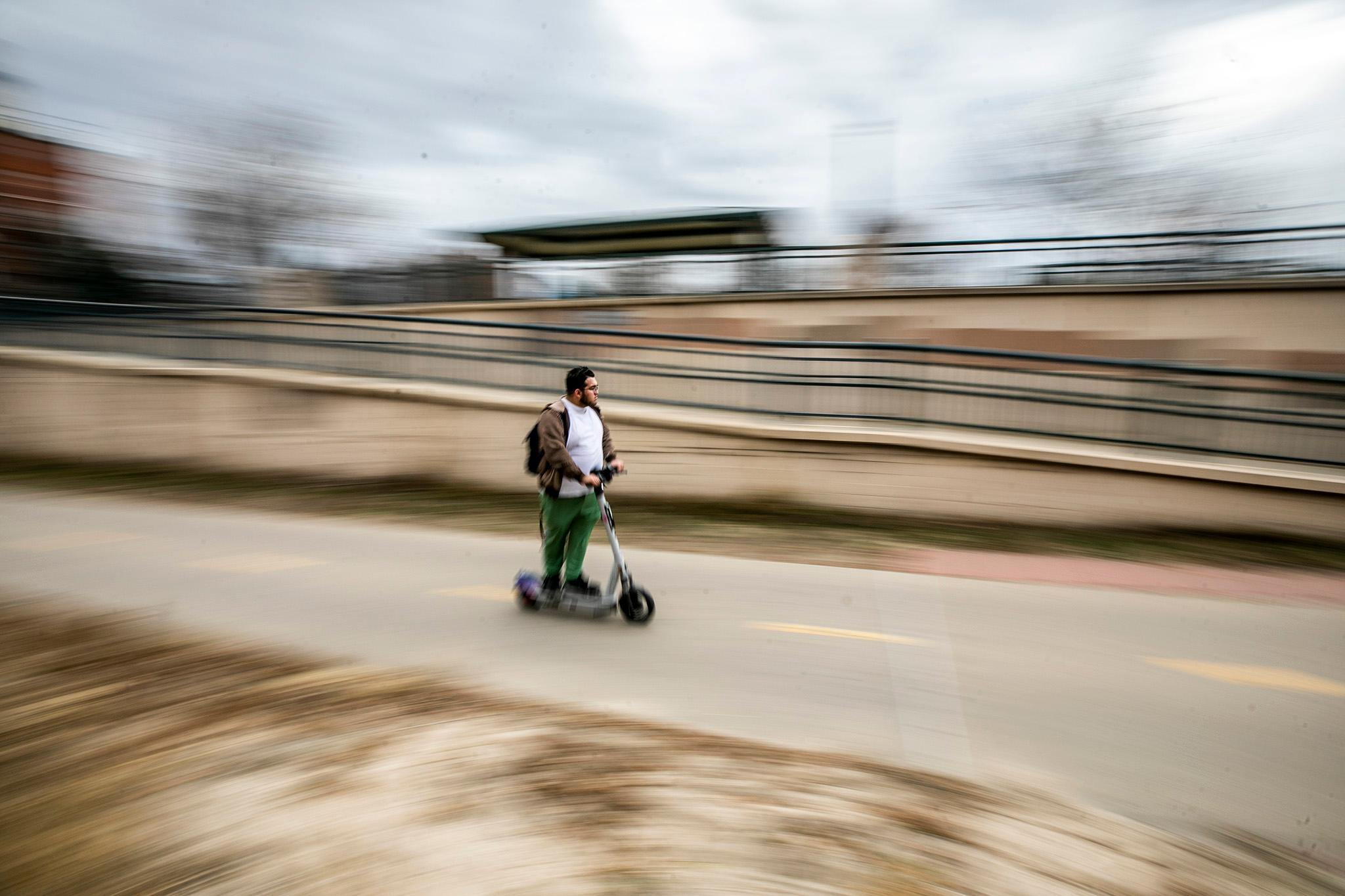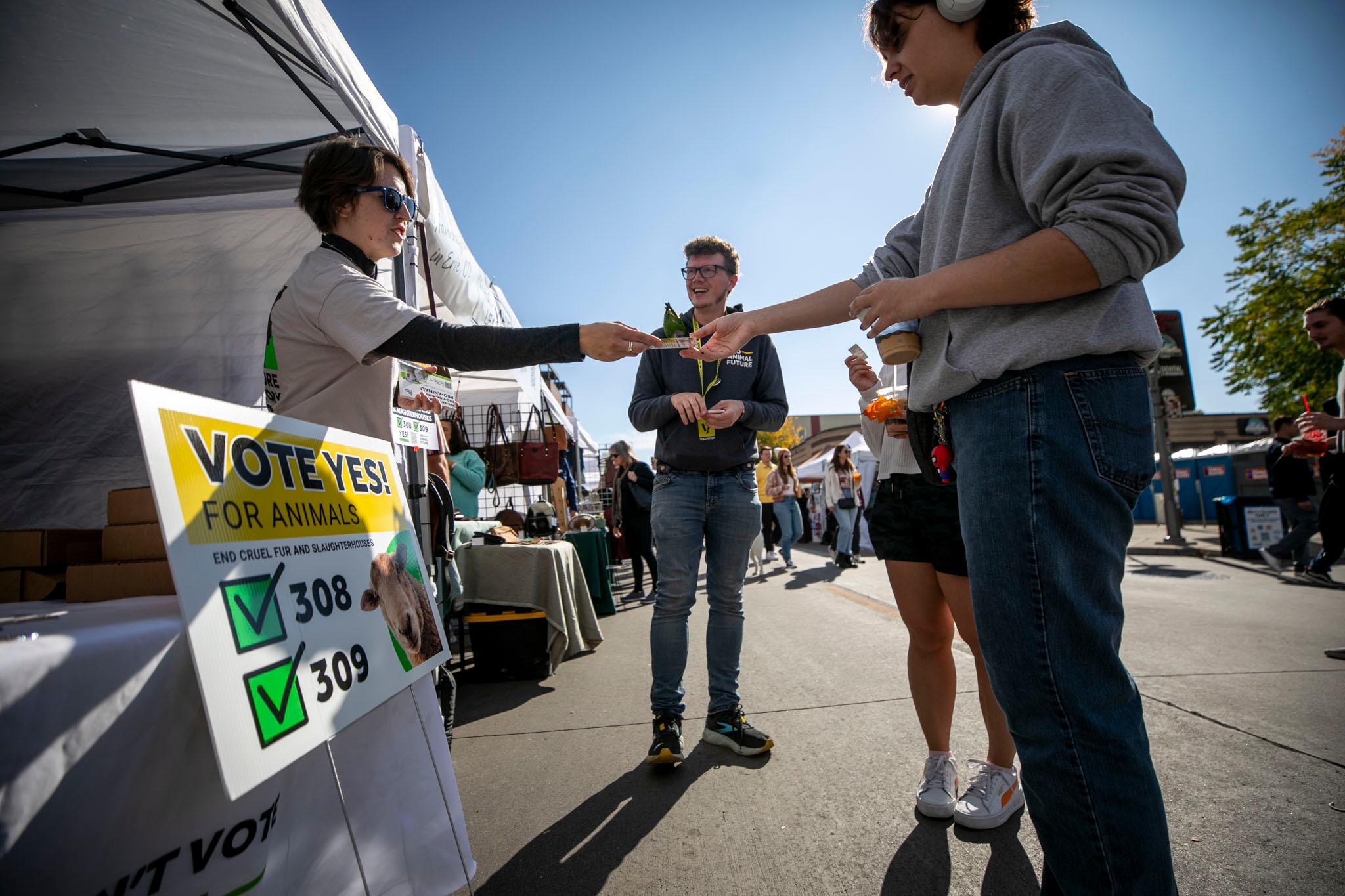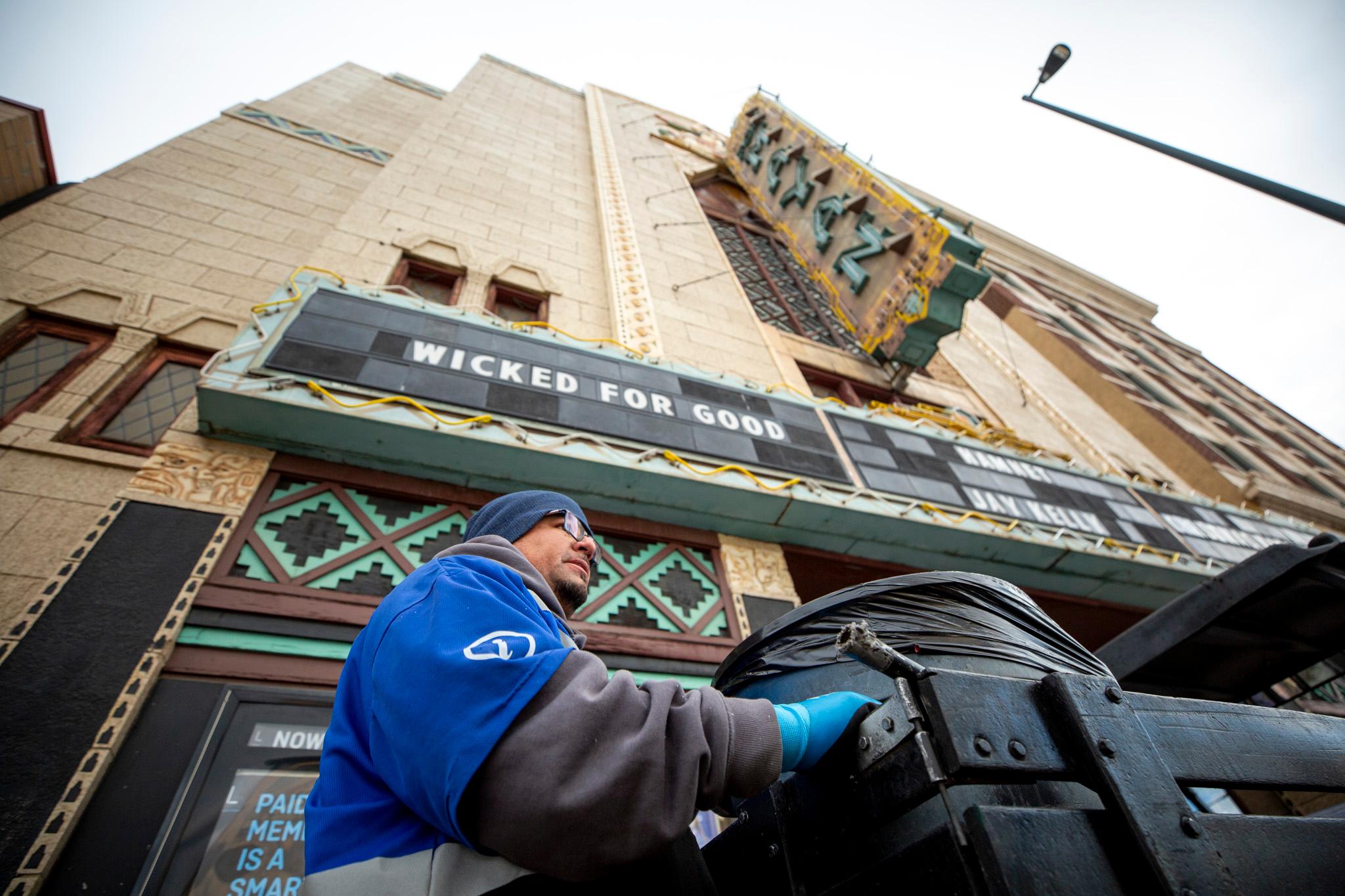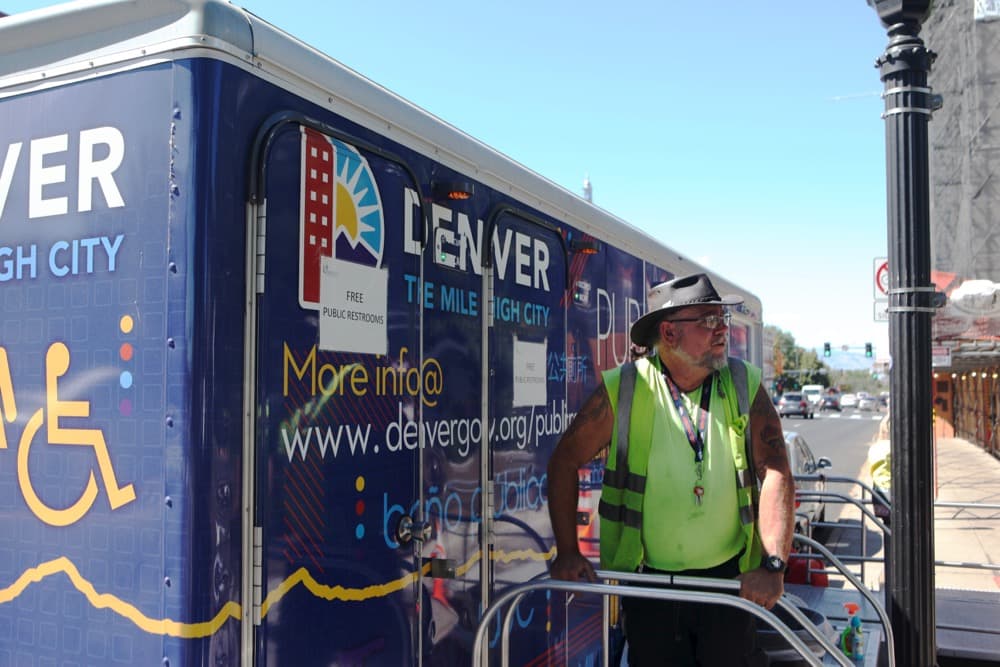
Denver has been running an unusual experiment around downtown: Two trailers filled with restrooms have been circulating the city center for 18 months. Now the city plans to make temporary toilets more permanent.
First, the city will have to find a location.
Denver is reporting mostly positive results from the pilot, and it has set aside money to build two fixed facilities. The timeline's unclear, but planning is underway already.
One possibility would be the intersection of Pennsylvania and Colfax. Colfax and Downing also ranked highly, according to a city analysis. The new bathrooms probably would replace streetside parking spots.
"I think it’s key to underscore that public input continues to be extremely important to this project," wrote public works spokesperson Nancy Kuhn in an email.
Later, the city hopes to build a second public restroom as part of the Colfax bus-rapid transit line. Meanwhile, the portable restroom trailer will keep circulating downtown through 2018.
Comments can be sent to program administrator Alen Ribic. We covered the program in depth earlier.
Building a public restroom may seem simple, but it's actually pretty rare.
Denver has only a handful of truly free restrooms downtown, and private businesses are increasingly reluctant to open up their stalls, according to city research.
That lack of restrooms can be a public health problem. In California, poor sanitation recently allowed a deadly Hep A infection to spread through human feces on city streets.
One barrier: Cities that have tried to use self-cleaning, automated restrooms often have run into massive maintenance costs, or they've found that the unsupervised bathrooms get trashed.
Denver plans to keep its new bathrooms clean and safe by hiring attendants around the clock, which is what it did in the pilot program.
The question was how people would use it -- and how the neighbors would react.
All kinds of people have stopped by the mobile test units -- bar hoppers, people living outside, dog walkers, bicyclists, joggers, commuters -- and the city surveyed more than 12,000 of them as they exited the stalls.
Overall, about 40 to 50 percent of users were homeless, the city reported. There were about 100 calls to 911 and for medical assistance due to crime and people who were unresponsive.
The pilot program costs about $30,000 a month to run.
Police reported no "negative impact."
And the city said that there was less excrement in nearby alleys.
The city claims that people did not tend to congregate around the toilets, but some merchants told the city that the restrooms were a "magnet for illicit activity." Others said that the restroom attendant was a helpful set of extra eyes on the street.
“Believe it or not, I did notice a big difference,” as one auto store manager told Denverite. The presence of a free, public restroom “took a lot of stress” off the business, she said.
Overall, online surveys showed people's opinions of the mobile restroom improved after it had spent time in their neighborhood, according to the city.
